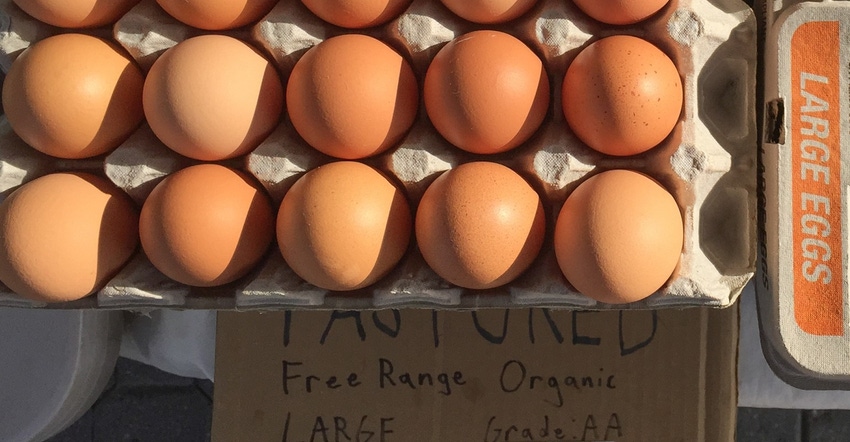
Pressure is building on the Biden administration to restore the organic animal welfare rule that was blocked and withdrawn by the previous Trump administration, according to the Organic Trade Association.
In just a few short decades, organic has become one of the fastest growing segments in food and agriculture, reaching $55 billion in annual sales last year. The previous administration took a very narrow interpretation of the Organic Foods Production Act stating that USDA did not have the authority to regulate animal welfare for organic livestock, but industry groups contend that has created competitiveness challenges for those who operate under higher welfare standards.
A letter sent to the White House from four senior lawmakers calls upon the administration to “reinstate the Organic Livestock and Poultry Practices Final Rule following the Trump administration’s withdrawal and subsequent four-year legal battle to block its implementation.” The letter to President Joe Biden was signed by Sens. Patrick Leahy, D-Vt., and John Tester, D-Mont., and Reps. Chellie Pingree, D-Maine and Peter DeFazio, D-Ore. Leahy and DeFazio are the original two authors of the Organic Foods Production Act, and Tester and Pingree are longtime organic farmers.
“By withdrawing the final rule on Organic Livestock and Poultry Practices, the Trump administration erroneously concluded that the Organic Foods Production Act does not authorize existing federal organic livestock and stand-alone animal welfare standards. This conclusion, if left uncorrected, destabilizes the entire organic livestock regulatory framework, and upsets more than twenty years of well-settled organic requirements. It is also significantly out of step with organic consumers and most Americans,” the letter notes.
Outdoor living is central to everything organic animal agriculture stands for, the legislators note. The Trump administration took the narrow position that “organically produced” livestock under OFPA means the “minimal administration of chemical and synthetic substances.” This obviously conflicts with existing federal organic policy under which many farm-wide practices such as pasture access for ruminants and outdoor access for poultry are mandatory, the legislators explain.
“We urge the administration to take this opportunity to collaborate with the organic industry by reinstating the final rule and restoring organic policymaking authority to its proper role,” says the lawmakers.
In a separate letter sent on March 23 to Susan Rice, director of the U.S. Domestic Policy Council, a broad coalition of interest groups calls for the withdrawal of the OLPP final rule to be reversed.
The letter to Rice states in order for organic to continue to thrive, the Biden/Harris administration must address several of the decisions made by the prior administration, which were not conducive to organic growth.
“Nearly 50% of the organic poultry market is now dominated by a handful of producers that do not allow meaningful outdoor access for hens. The result has made it more difficult for organic livestock farmers that operate at higher welfare standards to compete on a level playing field, and has restricted opportunities for small and medium sized producers to enter the organic market,” the industry-led letter states.
“We ask that you rescind the previous administration’s withdrawal and reinstate the Organic Livestock and Poultry Practices final rule immediately. These steps are necessary to restore consumer confidence in the USDA Organic seal, improve animal welfare, protect the environment, and support the thousands of family farms that are the backbone of the organic industry,” says the letter.
In related developments in the ongoing lawsuit by OTA against the USDA over the agency’s withdrawal of the OLPP rule, the trade association and USDA jointly requested the court on March 22 for a 30-day extension in the deadline of a joint status report, saying the two parties have conferred on several occasions in the last 30 days regarding a “potential amicable resolution” and that “an additional stay is appropriate to continue their discussions … to resolve the litigation.”
About the Author(s)
You May Also Like






